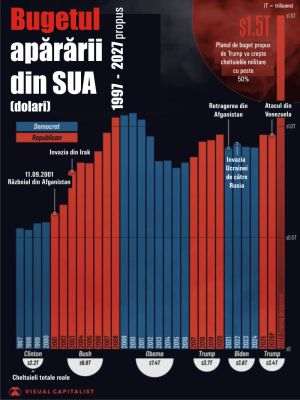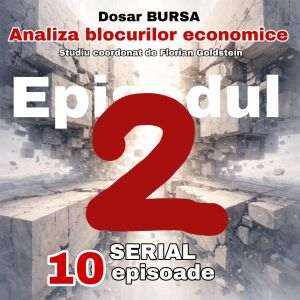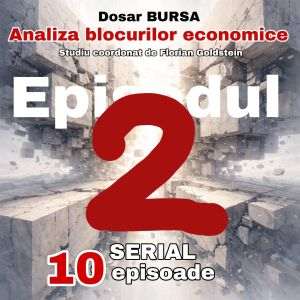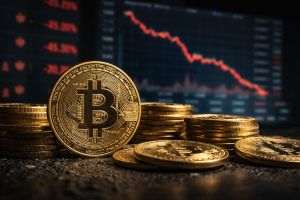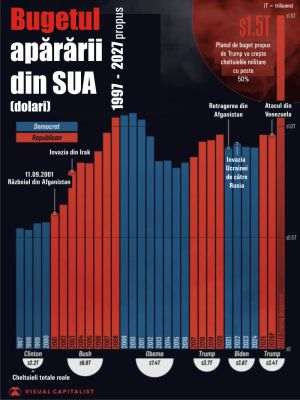Prices are falling for things people aren't buying and rising for things that they are", US economist Robert Wenzel wrote after the release of official US inflation data.
The statement says the title of the article is not a paradox, but a state of affairs that will become increasingly apparent in the coming months, even if government authorities and central banks are feverishly seeking "appropriate" explanations and scapegoats, most often "branded" with the "profiteer" tag.
The latest data from the BLS (Bureau of Labor Statistics) show that the US consumer price index strongly slowed down its annual growth in April 2020, to 0.3%, from 1.5% in the previous month.
Food prices had a "slightly" different dynamic. Amid the largest monthly rise since February 1974, the annual growth accelerated to 4.1%, up from 1.1% in the previous month. A major contribution to the slowdown of US inflation came from the price of gasoline, which fell 20.6% at a monthly rate and 32% at an annual rate.
A similar divergence between the annual dynamics of the consumer price index and the food price sub-index is being noticed in both Western and Eastern Europe.
German prices slowed their annual growth to 0.9% in April 2020, from 1.4% in the previous month, as food prices accelerated their annual growth to 4.8%, up from 3.7%.
The divergence between the inflation rate and the dynamics of food prices also occurs in other countries. Hungarian food prices rose at an annual rate of 8.7%, as the general price index slowed its growth to 2.4%, while Czech food prices accelerated their annual growth to 7.8% in April 2020, up from 6.4% in the previous month, amid the moderation of the inflation rate to 3.2%, from 3.4%.
In Romania, food prices accelerated their annual growth to 5.7%, from 5.1%, amid a moderation of the inflation rate to 2.7%, from 3.1%.
The Wall Street Journal recently wrote that "the coronavirus pandemic has triggered a global food crisis," despite rich crops, but which are being left to rot in the fields. Among the explanations provided are "a cascade of protectionist measures, transport disruptions and shutdowns of processors," and the situation is about to become dramatic, especially in developing countries.
Now economists, financial analysts or reputable investors are debating the issue of this phenomenon extending beyond rising food prices.
Famous investor Paul Tudor Jones expects a massive rise in inflation, as "we are witnessing the Great Monetary Inflation - an unprecedented expansion of all forms of money, the likes of which the developed world has never seen."
The statement appeared in an analysis by Bloomberg, which states that "the most pessimistic scenario for the markets is a massive stagflation in 2021, amid rising prices without rising wages." Stagflation is a phenomenon characterized by price increases, amid a stagnation or contraction of the real economy.
The sharp rise in inflation is also being predicted by Professor Charles Goodhart in a recent article, "Future imperfect after coronavirus", published on the VoxEU website.
As the former member of the Bank of England's Monetary Policy Committee writes, the massive shock to the supply of goods and services, caused by the "lockdown" of economies, overlapped with massive fiscal and monetary stimulus programs, will lead to "accelerated inflation which will be impossible to keep in check until the degree of indebtedness is brought down to a viable level".
Professor Goodhart also writes that this time the trajectory of inflation will be different from that which came after the Great Global Financial Crisis. Back then, numerous warnings appeared about the accelerated rise in prices following the launch of quantitative easing programs, but inflation did not materialize as a result of much stronger deflationary forces.
Why will it be different this time? Because quantitative easing programs since then have led to the injection of liquidity into the banking system, and liquidity has remained there in the form of surplus reserves, while current liquidity injections directly affect monetary aggregates.
The second factor is the speed of recovery until the pre-outbreak levels are reached. "The higher the speed, the more obvious the pro-cyclical nature of monetary injections will be," professor Goodhart writes.
Third, "China's role in the global economy has changed from an exporter of deflation to a neutral one, which will turn into an exporter of inflation."
All of these elements lead to the conclusion that the authorities, both fiscal and monetary, will tolerate the accelerated rise in prices and the existence of negative real interest rates in the economy for a long time, because it is the only way they can reduce the debt burden by excessive "dilution" of money.
Also in the inflationary camp is Stephen Roach, a professor at Yale University and former president of Morgan Stanley Asia, who recently wrote in FT that "a single supply chain breaking down can be enough for a return to the stagflation of the '70s".
On the other hand, Gavyn Davies, president of Fulcrum Asset Management, former chief economist at Goldman Sachs and former economic adviser to the British government, says the inflation rate will remain low amid very weak economic demand, according to the Financial Times.
"There are a number of forces driving inflation and a number of forces moderating it," Philip Lane, chief economist at the ECB, said recently, according to a Bloomberg article discussing the option of "recalibrating" the price index, because systematic distortion of the index will lead to erroneous monetary policy".
According to Lane, "inflation may rise in the future if dislocated supply chains cannot cope with rising demand."
For a clearer picture of consumer prices we must wait, for the time being, given that many goods or services in the consumer basket have disappeared from the market, and the official estimates being presented, especially at the aggregate index level, have a very high degree of uncertainty.
Only after the resumption of economic activity, even partially, will surprises start to appear.
Accelerated and persistent rising inflation should not be one such surprise, as it has remained the only "solution" to reducing the debt burden and "honoring" promises over public sector pensions and salaries.
And the solution will be used to the end, that is, until the complete loss of confidence in the currencies "diluted" by printing.
"The acceleration of inflation cannot be tempered until the degree of indebtedness isn't brought to a viable level".
CHARLES GOODHART,
professor emeritus at London School of Economics






